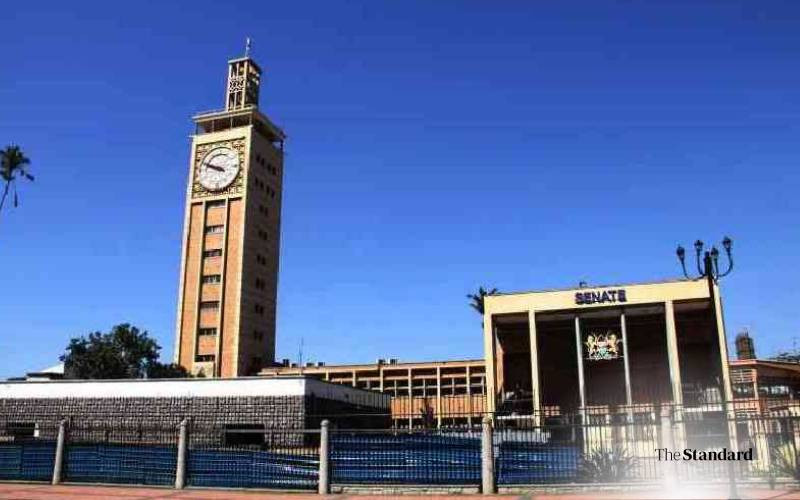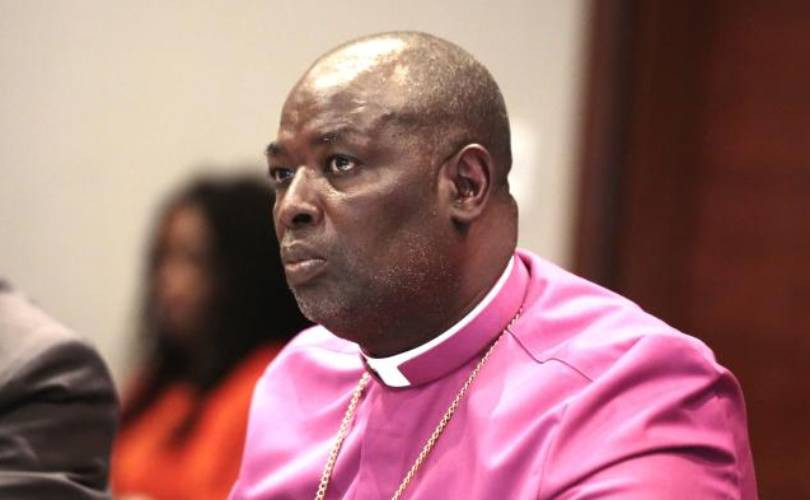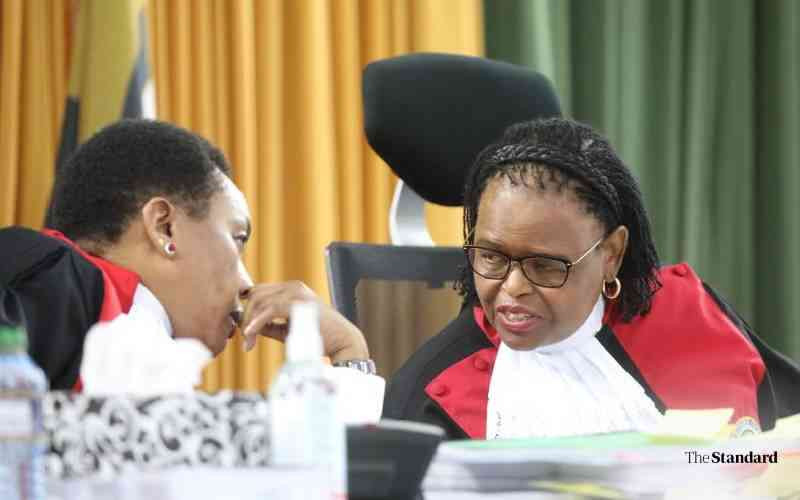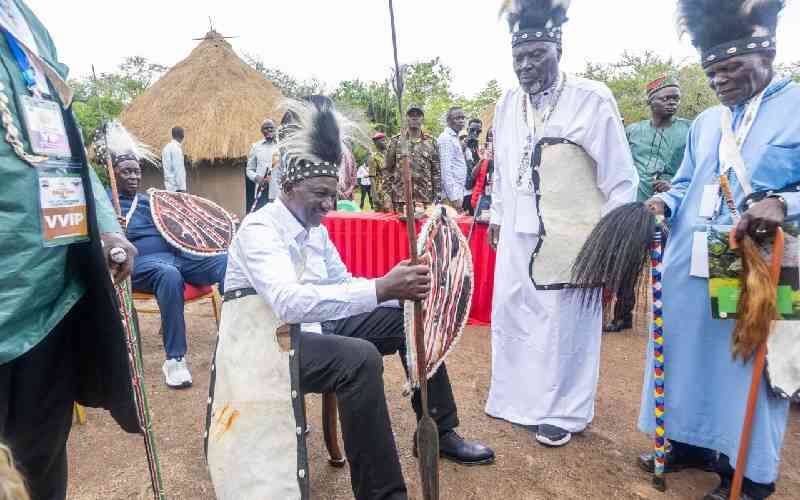The National Assembly has approved amendments to the Conflict-of-Interest Bill, 2023, addressing President William Ruto’s reservations he had previously raised, paving the way for the statute to proceed to the Senate for consideration.
“This House does agree with the report of the whole House on its consideration of the President’s reservations to the Conflict-of-Interest bill (National Assembly Bill No 12 of 2023,” Speaker of the National Assembly, Moses Wetang’ula, as he put out the question on Tuesday.
In April, Ruto referred the Conflict-of-Interest Bill 2025 back to Parliament for reconsideration on key issues of integrity and corruption measures and urged MPs to review and ensure it sets high standards for accountability, integrity, and anti-corruption measures.
While the Bill, as presented, addressed the subject of conflict of interest, the President stated the need for further improvements to strengthen its provisions on transparency and enforcement and align it with constitutional values of integrity and good governance across all levels of public service.
“It is unacceptable for the Houses of Parliament to deny the country a much-needed instrument in the war on corruption by continuing to sabotage the passage of the Conflict-of-Interest Bill. I implore you to stop dragging your feet on this bill unless, my friends, there is a conflict of interest in the passing of the conflict-of-interest legislation,” Ruto said in a State of the Nation address last year.
Leader of Majority in the National Assembly, Kimani Ichung’wah, during the committee of the whole House last Thursday moved the amendments, including that Clause 5 of the Bill be amended by deleting the words ‘a reporting authority’, which relates to the administration of the Act.
He said the National Assembly and Senate in the mediated version had adopted a version that would have the Act administered by the Ethics and Anti-Corruption Commission (EACC) and reporting authorities.
“In this case, reporting authorities for you and me would have been the Parliamentary Service Commission (PSC). The judicial officers would have been reporting to their reporting authorities, which would have been the Judicial Service Commission (JSC). That is the practice as it has been. But now, the President’s Memoranda proposes that the entire Act shall only be administered by EACC,” explained Ichung’wah.
To this end, he said judicial officers have to submit their declaration of wealth to the EACC, and so is the case for legislators, geared towards enhancing transparency and accountability, and helping in the fight against corruption.
“Judicial officers must take note that it is all judicial officers, from magistrates to officers working in the Judiciary, all the way up to the Chief Justice. They now report to the EACC on matters relating to conflict of interest. That is very important,” he noted.
Leader of Minority, Junet Mohamed, said the clause is a serious policy change that will not spare the corrupt but could have implications.
“I wish to reiterate what Ichung’wah has said that Members need to take note that both the legislative arm of Government and the Judiciary will be reporting to EACC. This is a very serious policy change. The way I see it, this will put many people in jail; the corrupt,” Junet said.
“There is no due process as I see it. Before you report to EACC, you should first report to the constitutional bodies that manage those institutions. That is why the JSC is in place, and that is why the PSC is in place. This memorandum is trying to propose that the constitutional powers of those organs created by the Constitution itself are now usurped by the EACC; another commission just like JSC and PSC,” he added.
Stay informed. Subscribe to our newsletter
Ichug’wah also moved that Clause 2 of the Bill be amended by inserting new definitions for some of the terms it contains.
“The Bill initially had very broad definitions of the word’s “family” and “relative”. The President’s definitions have restricted the word “family” to mean your spouse, dependent child, a parent or spouse of a public officer. The word “relative” has been restricted to mean a person who is related to a public officer by birth, marriage, adoption or affinity,” Ichung’wah explained.
Before this, the definitions included a person’s aunt, great uncle, first cousin, nephew, niece, husband, wife, grandfather, grandmother, grandson, granddaughter, father-in-law, mother-in-law, son-in-law, daughter-in-law, sister-in-law, and all that.
Those definitions have now been truncated in the President’s Memorandum.
The Majority Leader also moved that the Bill be amended by deleting Clause 8, speaking to situations when a public officer is in conflict of interest, and substituting with a new clause
Clause 8(a) states that a public officer is in conflict of interest if he/she exercises an official power, duty or function to further his or her private interests or of another person, the private interests of the public officer can reasonably be perceived to impair or influence the public officer’s ability to act objectively in the performance of an official duty or has private interests that could conflict with the duties of the public officer in future”.
This relates to instances where a public officer may be construed or seen to be in conflict of interest.
“In the mediated version, we had removed the part which says that the public officer will be in conflict of interest if that public officer has private interests that could conflict with the public officer’s future. The President has reinstated that particular section,” he said.
Tharaka MP, George Murugara, said the reservation, which has been brought to the House, may be valid to some extent, but noted that it applies to duties that the public officer may have in the future.
“This is for everybody to note, and it is subject to debate, which we are doing now,” Murugara said.
But Junet said: “I do not know how we are legislating for the future. That ‘if someone will have a conflict of interest in the future. ’ I do not think this clause has any meaning other than making things more difficult. It was removed in the Mediation Report.
“We are now saying: ‘If somebody is going to have a conflict of interest in the future’. How will you know whether they will have a conflict of interest in the future or not? You are not God. How will you know? We disagree with this one, but it is the President’s Memorandum,” he explained.
Other issues pointed out included that Clause 12 should be amended by deleting a sub-clause introduced in the mediated version, which stated that no proceeding shall lie against a public officer who grants special consideration or treatment, or advantage in good faith.
But Ichung’wah said it is the President’s reservation to remove that particular sub-clause, explaining that the issue was raised during debate that a favour should be extended to somebody on account of, say, age.
He cited a situation where people may be queuing at the airport, and there is an elderly person, and on account of their age, a public officer allows them to ‘jump’ the queue, which cannot constitute a conflict of interest, whether or not they know that person.
However, the President proposed that the clause be deleted.
A new sub-clause is also to be added to Clause 16, stating that, where a public officer has knowledge that a family member or a relative has accepted a gift or favour, he/she shall, within 48 hours of such knowledge, or, if not on duty, within 48 hours of resumption of duty, make a declaration of the acceptance.
In declaring, the officer should give sufficient details of the nature of the gift or favour accepted, the donor, and the circumstances under which it was accepted for purposes of assessment of potential conflict of interest.
But Junet said it must be on record that a majority opposed the memorandum, as he referred to Clauses 12 and 16, insisting that it is not a ‘Kenyan Bill’.
“It is an affront to all African cultures and values to say that if your relative who lives far away from you receives a bag of bananas or cassava from another person as a gift and you do not declare it, then you have a conflict-of-interest case to answer. It also highlights that if you do a favour to an elderly person in a queue in good faith, then there is a conflict of interest. These clauses in the Bill are alien to our country,” he stated.

























